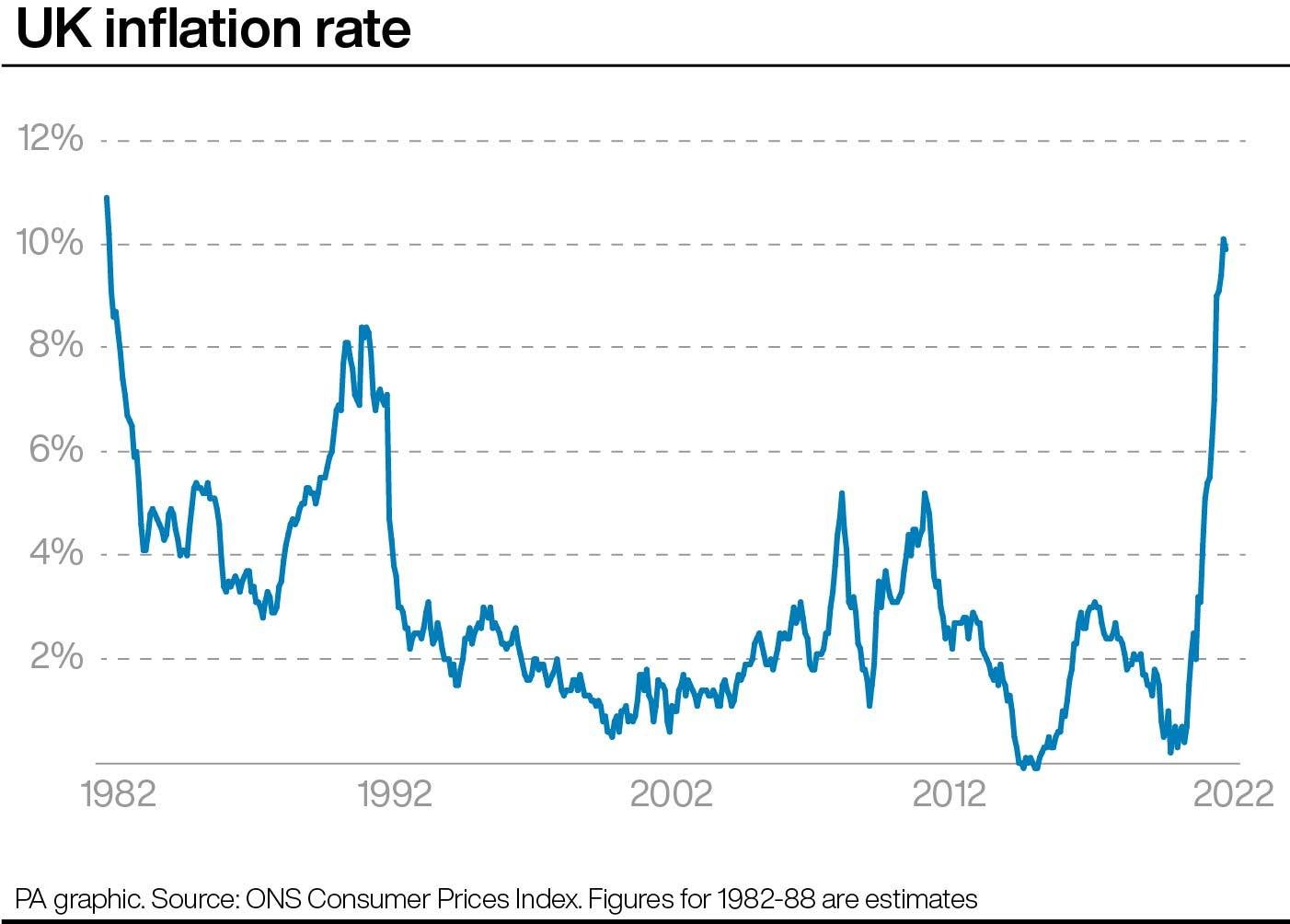
The public is supportive of the Government intervening to help people through the cost-of-living crisis at a similar scale to how it acted during the coronavirus pandemic, research suggests.
Support for increased taxes and public spending is relatively high while concern about inequality has also risen, according to a report by the National Centre for Social Research (NatCen).
Its 2021 British Social Attitudes survey consisted of 6,250 interviews of adults in Britain between September and October last year.
More than half (52%) of the public said the Government should increase taxes and spend more on health, education and social benefits at the end of 2021 – up from 50% during the pandemic and 53% in 2019.
Recognition of inequalities in Britain is at a level not seen since the 1990s— Gillian Prior, NatCen
This includes 46% of Conservative supporters and 61% of Labour supporters.
NatCen said the public appears to have accepted the higher spending and taxes “bequeathed” by the coronavirus pandemic, and “may well be in a mood to accept that action of a similar scale” must be taken during the cost-of-living crisis.
It added that the public might well expect any action taken to take into account the impact on those who are less well off.
Its report found that almost half (49%) now agree the Government should redistribute income from the better off to those who are less well off, up ten percentage points from 2019, and the highest proportion since 1994.
Around a quarter (27%) disagreed with this statement.

It also found that there are bigger differences in attitudes between London and the rest of the country than between the North and South, with the capital more pro-welfare and socially liberal.
It found little difference in attitudes towards welfare spending – with 37% of people in the north expressing pro-welfare views compared with 35% in the south.
But as many as 47% of people in London could be classed as pro-welfare, compared with 30-37% elsewhere.
Gillian Prior, NatCen deputy chief executive, said: “Our annual survey suggests the public faces the ‘cost-of-living crisis’ with as much appetite for increased government spending as it had during the pandemic.
“Recognition of inequalities in Britain is at a level not seen since the 1990s, with people more willing than they were a decade ago for government to redistribute income from the better off to the less well off.”
The wide-ranging survey also found:
– Britain is more polarised than ever over Scottish independence.
– For the first time, more people want an electoral system of proportional representation for elections to the House of Commons than want to keep voting as it is.
– Culture wars issues of identity, immigration and equality have the potential to rekindle the Brexit divide, with Remain and Leave voters holding different views. But mostly the public holds more socially liberal views.
– Satisfaction with the NHS hit its lowest level in 25 years in 2021, with long waiting lists identified as a major barrier to getting care. But it found that support for a free and publicly funded health service remains strong.
– The public is more committed in principle to equal opportunities for disabled people than they are for some other minority groups, but some are not always happy with the idea that they might have to work with a disabled person, especially someone with a mental health condition.
The findings of our survey certainly suggest why Britain might appear divided, buffeted and ‘broken’— Sir John Curtice, NatCen
Sir John Curtice, NatCen senior research fellow, said the new Government “faces a particularly formidable challenge in bringing Britain together”.
He said: “The findings of our survey certainly suggest why Britain might appear divided, buffeted and ‘broken’.
“The health service is widely thought not to be providing the timely service that people need and expect.
“Support for leaving the UK has grown in Scotland and Northern Ireland, and how Britain should be governed has become much more of a divisive issue.
“A new gap on attitudes to welfare and social issues has opened between the capital and the rest of the country.
“And divisions over ‘culture war’ issues could potentially become part of our politics, thereby helping to perpetuate the Brexit divide.”







